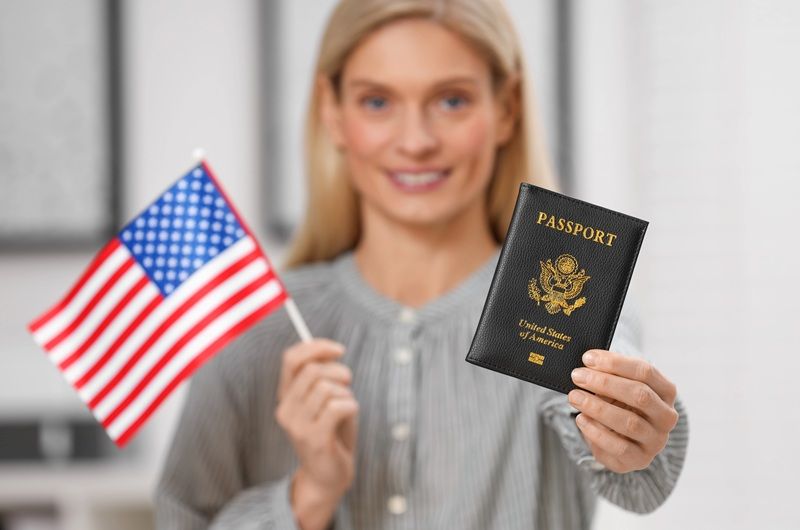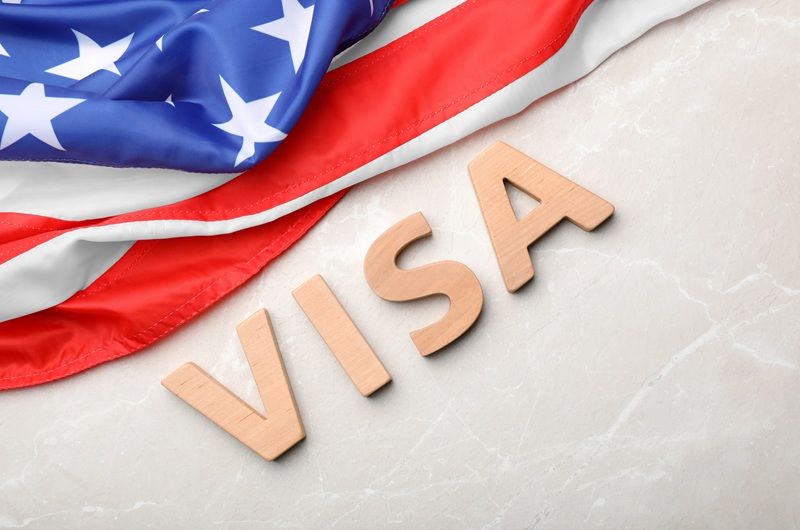How To File For VAWA Self-Petition & Get Your Green Card
The Violence Against Women Act or VAWA self-petition is a relief for immigrants who are victims of domestic violence. It empowers survivors by providing the necessary information and steps to seek legal protection. In line with this, obtaining a Green Card is possible but can be complex.
This article provides information on VAWA self-petition and its eligibility criteria. It outlines the step-by-step process and the role of an immigration lawyer in the process. Read on to learn various tips for a successful Green Card application.

What Is The VAWA Self-Petition?
The VAWA self-petition is a unique legal process for victims of domestic violence. Enacted by Congress in 1994, it grants people an opportunity to self-petition for immigration benefits. It provides a pathway to lawful permanent residency in the United States for those who have experienced abuse by a family member or intimate partner.
Under the VAWA, victims of abuse who are blood relatives of U.S. citizens or lawful permanent residents can file a petition alone. It allows them to apply for a Green Card without the support or sponsorship of their abusive family members.
Individuals must show they have experienced violence or extreme cruelty to qualify for the petition. Additionally, their abusive spouse, parent, or other family member is a citizen of the United States or a lawful permanent resident. This maltreatment can take various forms, including physical, emotional, psychological, or sexual.
The typical immigration process requires a U.S. citizen or lawful permanent resident relative to file a petition for an immigrant. However, this process allows victims to pursue legal status independently through a self-petition. This provision empowers them to seek safety and security without relying on or being controlled by their abuser.
VAWA recognizes the experiences of survivors and provides a pathway to legal immigration status. It gives survivors a chance to leave violent relationships behind and allows them to build a brighter future for themselves and their families.
Who Is Eligible To Apply For VAWA?
The self-petition allows specific individuals to apply for a Green Card independently without the support of a violent spouse or family member. The following groups may be eligible to file and obtain a Green Card:
- Spouses of U.S. citizens or lawful permanent residents (LPRs).
Individuals married to U.S. citizens or LPRs and have experienced abuse from their spouse may be eligible to apply for a self-petition. The victim must demonstrate they have suffered abuse. It includes physical, emotional, or mental cruelty inflicted by their U.S. citizen or LPR spouse.
- Children of U.S. citizens or lawful permanent residents.
Children who have suffered abuse from a U.S. citizen or LPR parent may also be eligible to file a self-petition. This crucial opportunity ensures that vulnerable kids are not left without recourse, regardless of age or marital status.
- Parents of U.S. citizen children.
Parents abused by their U.S. citizen adult child may qualify for a self-petition if they meet specific criteria. It aims to break the cycle of abuse and protect those victimized. They provide an avenue for parents to seek justice and safety independently.
The VAWA Self-Petition Process
Obtaining a Green Card is essential for some immigrants who are victims of domestic violence. It represents a crucial step towards breaking free from the cycle of abuse and building a brighter future in the United States.
Gather Required Documentation
Gather all the necessary documentation to support your self-petition. It may include photographic evidence, police reports, medical records, and other proof of the abusive relationship. Affidavits from witnesses and other relevant documents validating your abuse claim may also be necessary.
Complete Form I-360
Fill out Form I-360, the Petition for Amerasian, Widow(er), or Special Immigrant, accurately and completely. This form is the foundation of your self-petition. It requires detailed information about yourself, your abuser, and your relationship history. Avoid any mistakes or inaccuracies, as they could cause delays or denials in the processing of your application.
Prepare Your Self-Petition Package
Compile all the necessary documents and complete Form I-360 into a comprehensive self-petition package. Include a cover letter summarizing your case and emphasizing critical points from the evidence provided. Organize the documents in a logical order and label each page clearly to facilitate the review process by USCIS officers.
Preparing the self-petition carefully and efficiently is crucial to navigating this process successfully. It is advisable to consult a lawyer or seek legal advice to determine eligibility for VAWA self-petition.
How Can An Immigration Lawyer Help You?
A lawyer can provide valuable assistance and guidance while filing for a self-petition and obtaining a Green Card. Their advice can make a significant difference in the outcome of your case. Here are a few ways an immigration attorney can be helpful.
Legal Advice
A lawyer experienced in immigration law and VAWA self-petitions can guide the specific requirements. It also includes the eligibility criteria and evidence needed for a successful petition. They can assess your situation, explain the legal process, and provide personalized advice tailored to your case.
Documentation & Evidence Gathering
One of the crucial aspects is compiling the necessary documents and evidence to substantiate the abuse suffered. A VAWA lawyer can help you identify and gather the appropriate requirements. It includes police reports, medical records, affidavits, and other supporting evidence, ensuring your case is well-documented and persuasive.
Preparation & Filing
Filing the correct forms accurately and on time is crucial for a successful self-petition. A lawyer can assist you in preparing the necessary documents, such as Form I-360. They ensure they include all required information and complete the forms correctly. They can also help you navigate complex filing procedures.
Case Strategy & Advocacy
Your legal representative can develop a comprehensive case strategy based on the specific details of your situation. They can analyze the evidence, identify potential challenges, and build a solid argument supporting your self-petition. An attorney can represent you, advocate, and present your case effectively.
Communication With USCIS
U.S. Citizenship and Immigration Services may request additional information, documentation, or clarification during the review process. A lawyer can handle the communication with USCIS on your behalf. They ensure to address all requests promptly and accurately. Additionally, they can provide updates on the progress of your case.
Additional Immigration Support
Beyond the VAWA self-petition, a lawyer can guide you on other immigration options and strategies that may be available to you. They can explain the implications of obtaining a Green Card and explore opportunities to adjust status or consular processing. They also provide advice on maintaining legal immigration status in the United States.
An experienced legal representative can assist in navigating the complexities of immigration law, improving the chances of a successful petition. Thus, understanding and being familiar with the tips for a Green Card interview is crucial.
How To Ace Your Green Card Interview
 Attending the interview can be a nerve-wracking experience. But with the proper planning and direction, you can raise your chances of success. It is crucial to gather all the required documents and make copies of each. These documents may include your passport, birth certificate, and marriage certificate (if applicable).
Attending the interview can be a nerve-wracking experience. But with the proper planning and direction, you can raise your chances of success. It is crucial to gather all the required documents and make copies of each. These documents may include your passport, birth certificate, and marriage certificate (if applicable).
During the interview, it is essential to dress professionally and arrive early to avoid any unnecessary stress. Remain calm and answer questions truthfully and concisely. It is normal to feel nervous during this process. However, practicing potential interview questions beforehand can help build confidence.
As you navigate the VAWA self-petition process, it is crucial to consider the benefits of obtaining a Green Card. Remember to gather any additional evidence that supports your eligibility and consult with an immigration lawyer for personalized guidance.
What Are The Benefits Of A Green Card
Obtaining a Green Card, and lawful permanent residency, offers several significant benefits. First, it grants you the right to live and work permanently in the United States. You can pursue employment opportunities without restrictions and enjoy the country’s stability.
A Green Card provides access to various social benefits and services, such as healthcare, education, and social security. It allows you to travel freely in and out of the United States and return without a visa. Additionally, holding a Green Card puts you on a path toward U.S. citizenship if that is a goal you wish to pursue.
A Permanent Resident Card protects against deportation, providing security and peace of mind. It allows you to establish roots in the United States and build a future for yourself and your family.
The Violence Against Women Act (VAWA) self-petition allows victims of domestic violence to apply for a Green Card in the United States independently. By demonstrating abuse or extreme cruelty by a U.S. citizen or LPR family member, an individual can qualify for this relief.
The process involves gathering documentation, completing Form I-360, and creating a comprehensive self-petition package. Seeking the guidance of an immigration lawyer can be beneficial throughout the process. Obtaining a Green Card through VAWA offers various benefits. They include the right to live and work in the United States, access to social services, and a path to U.S. citizenship.
Contact A U.S. Immigration Attorney Today!
Categories
How To Find Us
What Our Clients Say
“This Lawfirm is great, very professional and helpful. I love that they are always in communication and always available for when you have questions . 100% recommended by me and my family. Thank you Lincoln-Goldfinch Law – Abogados de Inmigración”





